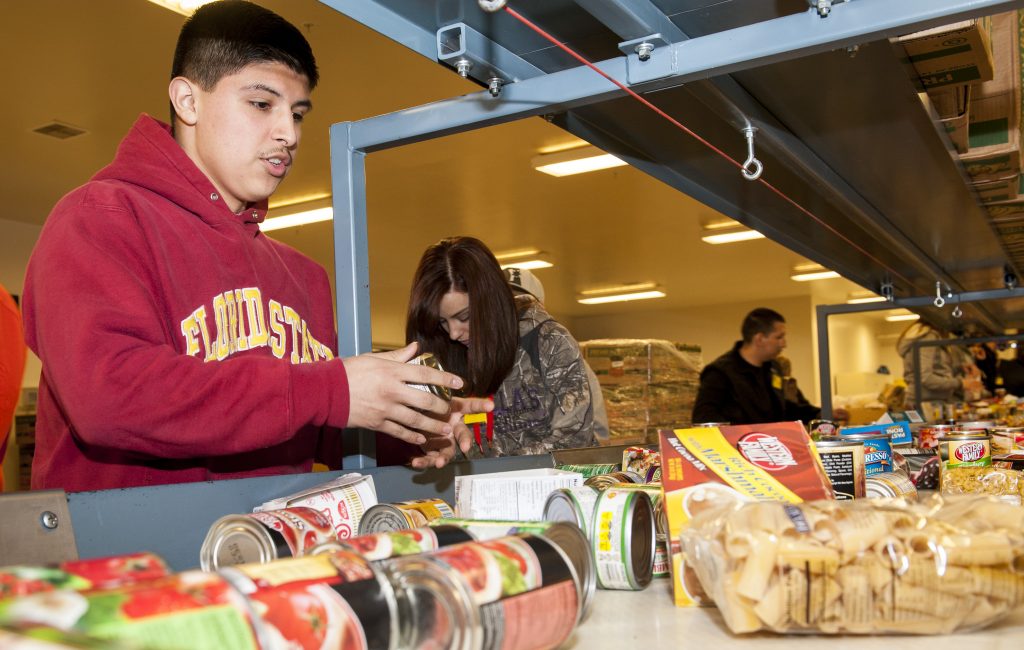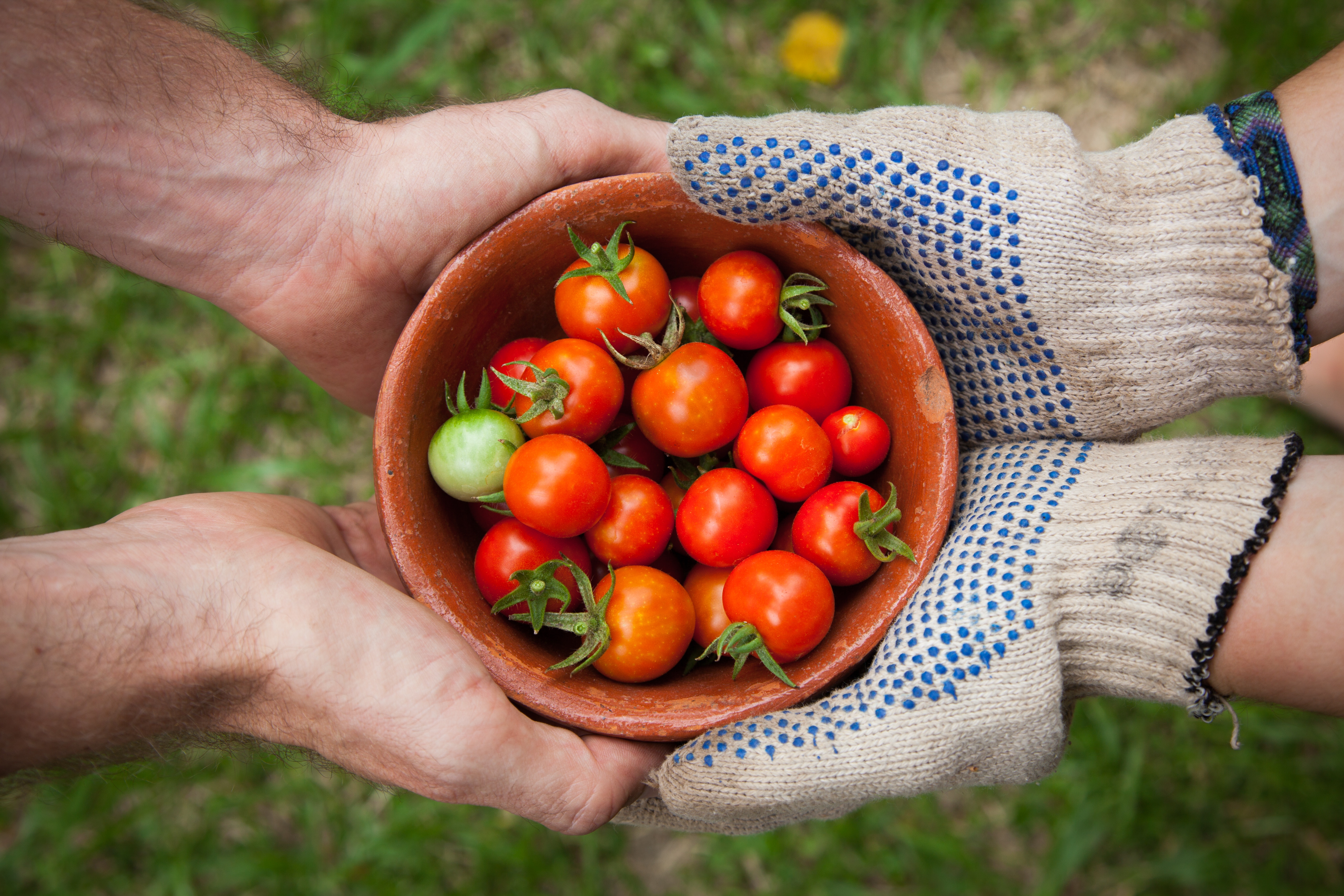The Scottish Government must lead by example in enshrining the human right to ‘adequate food’ in law. This means overhauling its entire food system to tackle hunger and protect the environment, charity Sustain’s Imogen Richmond-Bishop writes.
More than 70 leading charities, academics and a UN expert last month signed an open letter demanding First Minister Nicola Sturgeon call a vote on enshrining the right to food in Scot’s law, as part of a “Good Food Nation Bill”, before the end of this Parliament in 2021.
The letter was spearheaded by the Scottish Food Coalition, which has also launched a petition calling on the Scottish National Party (SNP) leader to make good on her 2016 manifesto pledge to bring forward such a bill.
It comes after the Rural Economy Cabinet Secretary Fergus Ewing appeared to scale down a commitment to a Good Food Nation Bill, which was expected to be introduced last year, before launching a public consultation instead that ended earlier this year.
What’s The Problem?

Image Credit: Defense.gov
Many Scottish people are food insecure, this means that they struggle to put food on the table or they don’t know where their next meal is coming from.
The latest figures from the Scottish Health survey show that nearly one in ten people in Scotland suffer from household food insecurity, rising to nearly one in five in more deprived areas.
Household food insecurity is not due to a lack of food, as Scotland like the rest of the UK has a stable food system through both domestic production as well as imports. Rather, it is mainly due to a combination of regressive tax and welfare reforms as well as rising living costs.
Over the past ten years, spending on welfare benefits for some of the poorest families in the UK has been reduced by a quarter. This means that some of those who are the most in need are now receiving even less than they were before. Furthermore, work is no guarantee out of poverty – with three in four children in poverty having at least one working parent.
Food insecurity’s impact on people’s mental wellbeing is well documented. Charity Nourish Scotland found that many people who were food insecure felt ashamed and disempowered by the experience due to the stigma surrounding poverty.
The charity’s Stephanie Mander said: “Access to nutritious food is a fundamental human right – but we not realising this right in Scotland. Evidence of food insecurity, diet-related illness and ecological damage is increasingly damning.
“We need to put the right to food into law, so that the Government takes action to enable universal access to high quality, nutritious food that is produced in a way that is fair to people, animals and the environment.”
The right to food is not simply about ending food poverty. It should take us further than this to a more fundamental change to our food system, taking into account impact on the environment. The global food industry, including transport, packaging, and waste, is responsible for 25 to 40 percent of worldwide greenhouse gas emissions, according to a report from charity Grain.
Why We Need The Right To Food

Image Credit: Pexels.
The UK has ratified a number of international treaties which protect the right to food, including the International Covenant on Social, Economic and Cultural Rights (ICSECR), among others.
It is about more than just the right to be fed. It is about ensuring that all people regardless of their gender, race, immigration status, or age are able to access food in a dignified way.
Dignified access to food may look different for different people but it will ultimately be underpinned by a work and welfare system that provides adequate incomes. Sustainability is also at the core of ensuring access, as food needs be accessible for future generations as well as the current one.
The UK is lagging behind in terms of its protection of socio-economic rights. Across the world, 90 percent of constitutions recognise at least one socio-economic right. In 70 percent of countries this right is judicially enforceable.
In Scotland, the Scottish Food Coalition has long been campaigning for systemic change to Scotland’s food system. The need for a new approach is urgent in light of surging levels of food insecurity and record food bank demand across the UK.
Professor Mary Brennan, chairwoman of the Scottish Food Coalition, said: “It is time for Scotland to build a food system based upon the right to food which nourishes all our citizens while restoring our environment and being part of the solution to the climate emergency.”
She added: “The way we govern our food system will impact our people and our planet for generations to come.”
The Good Food Nation Bill, with the Right to Food at its heart, would help to tackle household food insecurity in Scotland and address a number of other key issues currently affecting the Scottish Food System.
The Scottish Food Coalition’s recent open letter to the First Minister has been signed by UN Special Rapporteur on the Right to Food, Hilal Elver.
There is progress in Wales on socio-economic rights, through the Future Generations Act that places a legal obligation on the Welsh Government to improve the social, cultural, environmental and economic wellbeing of its residents, but there is little progress from Westminster. Likewise, Northern Ireland has not had a parliament since the power sharing agreement broke down in 2017.







